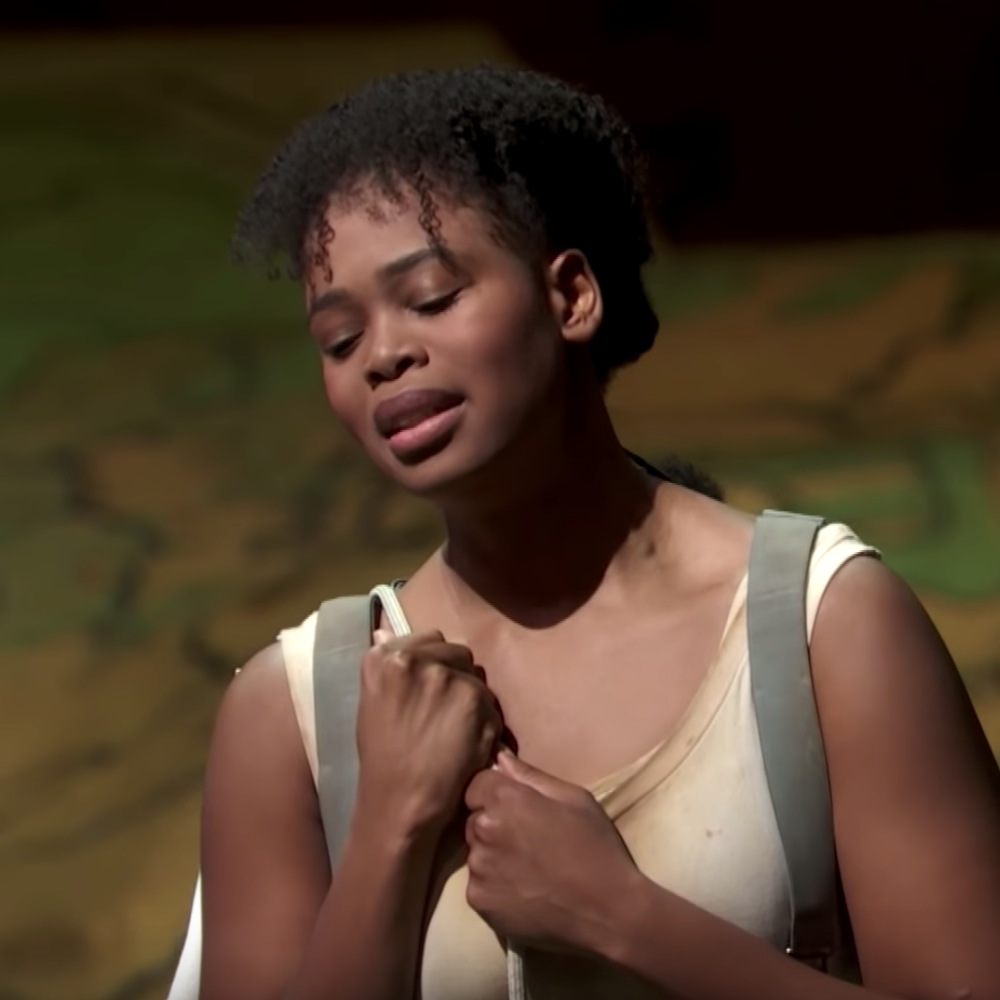It is a brief, charming moment — and subtle enough that some audience members may miss it. But it speaks loudly as a symbol: the distinctive clicks of Zulu, the African language, echoing from the stage of the Metropolitan Opera.
It comes during Donizetti’s comedy “La Fille du Régiment.” Pretty Yende, the bel canto soprano singing the title role — Marie, an orphan raised by an army regiment — ad-libs a brief spoken monologue as her character gives vent to overwhelming, conflicting emotions of love and frustration as she deals with laundry and peels potatoes.
In this production, by the director Laurent Pelly, the moment has always been an opportunity for singers to depart from the French libretto in a rush of words and sounds, flights of verbiage that leave subtitles in the dust. When Ms. Yende, 33, made the part her own in the current revival, she decided to incorporate Zulu, which she grew up speaking in South Africa.
As the broader field of classical music lags in diversity — and as opera companies have sometimes struggled to preserve what is great about works like “Aida,” “Otello,” “Madama Butterfly” and “Turandot” while jettisoning their outdated, often offensive portrayals of non-European cultures — it sends a powerful message.
Ms. Yende, an international star who is on the cover of this month’s Opera News, spoke about how she came up with her Zulu moment for “Fille,” which will be broadcast live in cinemas worldwide on March 2. Here are edited excerpts from the conversation.
Could tell me a little bit about how this came about?
It started in one of the rehearsals, when I was doing the debut in Seville, Spain — instinctively, because it’s not scripted. I couldn’t find the vocabulary for what I truly wanted to say, that emotional part of Marie. And so I just started speaking Zulu.
The whole room, they were like, “We weren’t expecting that!” I wasn’t expecting it, either, but somehow, emotionally, I went that route. I didn’t want to plan it, because it’s one part in the show where she doesn’t know what she’s saying. She’s in so many emotional states. She’s in love, and she’s afraid, and she wants everything. And so when I started doing it in Zulu, the director was then like: “That’s interesting. It actually works. Do you want to keep it?” I was like, “Sure!”
What are you saying? It happens just after the man you love visits you at the regiment and is dragged off.
Well it’s different every night. The rough translation is: “Oh, my goodness, I really wanted to kiss him more, but what can I do? I have to work, now he’s gone! O.K., fine, I have to do what I need to do. This doesn’t have to be here, it has to be here! So that I can work properly. And then, of course, what can one do? It’s the military: left, right, left, right!”
But one thing that you probably heard was the clicks when I say “ingqondo,” which is “mind.”
What does it feel like to be able to speak Zulu at the Met?
It feels so wonderful because I never thought of having this kind of possibility to be able to literally have a piece of my true self onstage. We embody these characters, and we go through their emotional journeys. And we are somewhat restricted to their texts, and the music of course, and sometimes the production as well.
But somehow this production has allowed me this incredible privilege to actually show literally that a part of me is in the music, too. Saying that this is Pretty, and she’s playing Marie. And these two human beings are meeting together to express a common human emotional state. Because I, too, when I am crushing on a boy, don’t have words sometimes. That happens; it’s a human experience, which is truly wonderful.
When you were studying in Cape Town, were there Zulu operas that you sang?
No, unfortunately not. Composers have just recently started to really show interest in composing South African stories and operas. So who knows? Maybe next time at the Metropolitan Opera I wouldn’t have to improvise — it would actually be written down.
It seems like the South African opera scene is growing, with singers like you and the bass-baritone Musa Ngqungwana and the soprano Golda Schultz, who is currently in the Met’s “Falstaff,” appearing around the world.
There’s incredible talent in my country, and if you think I’m the only one that can do what I do, it’s a big mistake. You’ll find 10, 20 people able to do that. The beauty is that each and every person, of course, they have their own unique gifts and the way they use it. But as far as talent is concerned, and opportunities — especially when it comes to black artists — it has really enhanced them and made them believe that they too can be able to express themselves this way. Because many others, before Mandela was released, were never given that opportunity.
So we are just enjoying this time. And the operatic world has truly opened its doors for us. In a sense, I think that music, as we’re dealing with harmony, is teaching the world that truly there shouldn’t be barriers. We can live in harmony and express our humanness together, through the arts.
